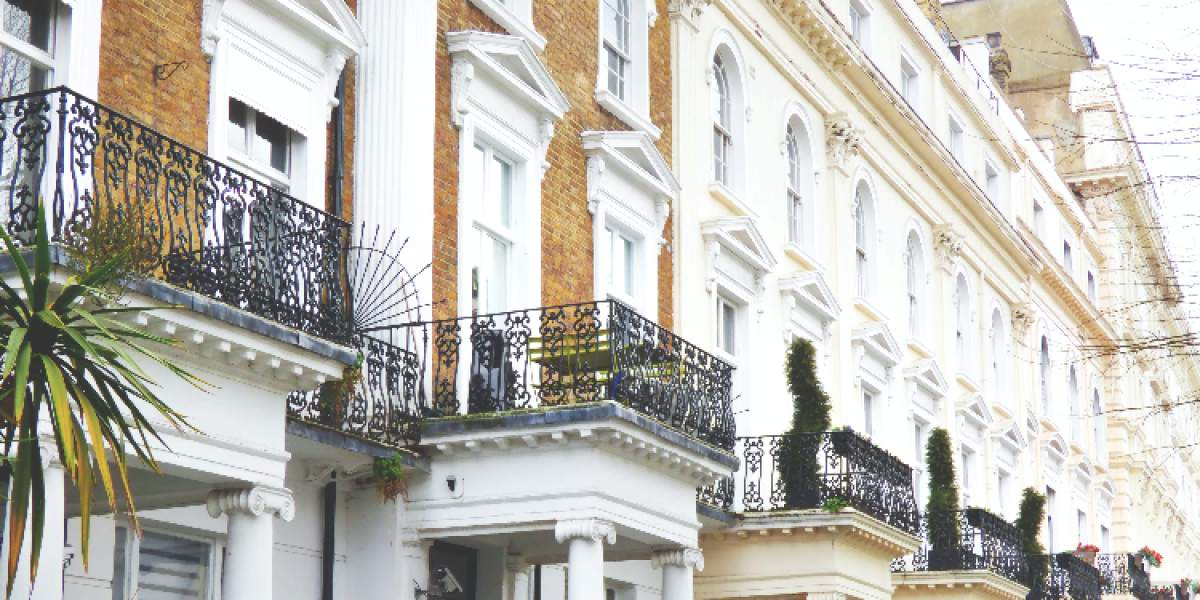
Like most sectors, the global real estate market has also been affected by the COVID-19 pandemic. So what should you keep in mind if you're a property owner or you're looking to buy or rent a property as an expat amid the crisis?
In the past year, the pandemic has led to job losses on the scale of the 2008 global recession. It has also disrupted the global economy due to restrictions in local and international mobility and cessation of activities within specific sectors (e.g., hospitality, tourism, travel, etc.). Vast European economies such as the German, Spanish, and Italian are expected to decline by up to 9%. In the USA, the negative Covid-19 impact is yet to be documented. Considering the aforementioned, how hard is the real estate market hit by the pandemic, if at all, and what should expat and expat-to-be investors, landlords, and tenants expect in a post-Covid era, we dare say?
Property investment
Owning a property, or for that matter, many properties, has significant advantages that investors cannot overlook. A property may offer returns, protection against inflation, steady cash inflows, and income tax savings. However, not all times are the same, and global situations such as a pandemic can cause real estate investment challenges. One year since the outbreak of Covid-19, property managers and owners are anxious about maintaining the value of their property, keeping their premises safe as per the government's regulations, and collecting monthly rents when tenants cannot return to the property or don't have the money to pay. Naturally, due to the blockage of international travels and decrease in business trips, investment in commercial property (e.g., resorts, hotels, bars, restaurants, stores, and malls) has also declined.
According to a recent survey by Duff & Phelps consultant firm, 39% of investors from the world's most developed markets believe that real estate values will fall between 5% to 10%, while 31% believe that the drop will be more severe. However, almost all participants hope real estate's economic value will rise back to pre-Covid-19 levels within this year. In any case, investors are not keen to invest in commercial property as yet and will be looking into Covid-19-resilient ventures. Finally, 38% of respondents expect to see more and more non-performing loans (loans where the borrower hasn't made any scheduled payments for 90 days or more).
The paradox of the housing market
Despite socioeconomic life being anything but normal, house prices worldwide are not adversely impacted — quite the opposite, house prices continue to rise. Ιndustry experts and analysts attribute this paradox to the government Covid-19 recovery packages, which amount to USD 2 trillion in the European Union. Whereas such a big deal will help member states recover from the economic fallout, it creates a vicious cycle and inequality in the European real estate market. According to UBS financial services firm, house prices have risen in eight out of ten high-income and middle-income countries globally, including the US and Germany. Cities such as London, Tokyo, Stockholm, Geneva, Tel Aviv, Sydney, and New York are reported to have an overvalued housing market whilst Madrid, San Francisco, Dubai, and Hong Kong are the only cities out of 25 cities analysed that have seen a fall in home values. Also, a slight decline in housing prices has been witnessed in Australia.
It is not the first time we witness the home market taking a turn for the better shortly after a crisis. In 2008, real estate prices did fall by 10%, but they quickly recovered thanks to low-interest rates and other fiscal stimuli. But the UBS affirms that high accommodation prices alongside the loss of income in many struggling households, will exclude first-time buyers from the property market and highlight inequality. According to Eurostat, the EU's statistics office, a similar pattern was reported between 2012 and 2019 when housing prices in Germany, for instance, went up 43% while income rose only 19%.
The risk of a bubble
The fear of a global real estate market nosedive as a result of the cessation of government packages and benefits is substantial. Especially since the second wave of the pandemic has hit many developed countries even harder than the first one, and everyday life is pervaded by unpredictability. Will there be a property bubble due to excessive lending and construction? According to UBS, Toronto, Munich, Frankfurt, Paris, Amsterdam, Zurich, and Hong Kong are at a higher risk of a housing bubble.
But which elements define a property pricing and influence the value of property investment? As population and urbanisation grow, the land becomes more valuable, and therefore its price increases. Private or public improvements, which are additions or changes to the land, area, or a building also affect the property's value. Of course, the property's location defines the price to a great extent, if not the greatest. The history and reputation of the neighbourhood, convenience, transportation — all determine real estate prices.
Rentals, landlords, and leases
Whether you are renting accommodation that you are not using, or cannot afford to pay your rent due to Covid-19 exceptional circumstances, you should discuss your lease with your landlord. Landlords around the world appear to be empathetic towards the challenges tenants face due to the pandemic and are willing to review the contract's terms and conditions. Issues to raise with your landlord can be: Do I have to continue paying rent if I don't use the property? Does Covid-19 excuse me from meeting the lease obligations? If you plan to move to a new place amid the pandemic, enquire about flexible and reasonable lease terms that fit your current situation and are in light of the most up-to-date information you have about the coming months of your life.
The post-Covid-19 real estate market
Whether we continue to witness an increase in housing prices or a temporary freeze during 2021, people are perplexed by the longevity and power of an unprecedented situation, which has changed everything we knew until then. So, is there interest in buying, selling, and renting new real estate and how will commercial real estate adapt to the new health and safety measures that might be here to stay? A year later, but it seems that it is still too early to tell.



















